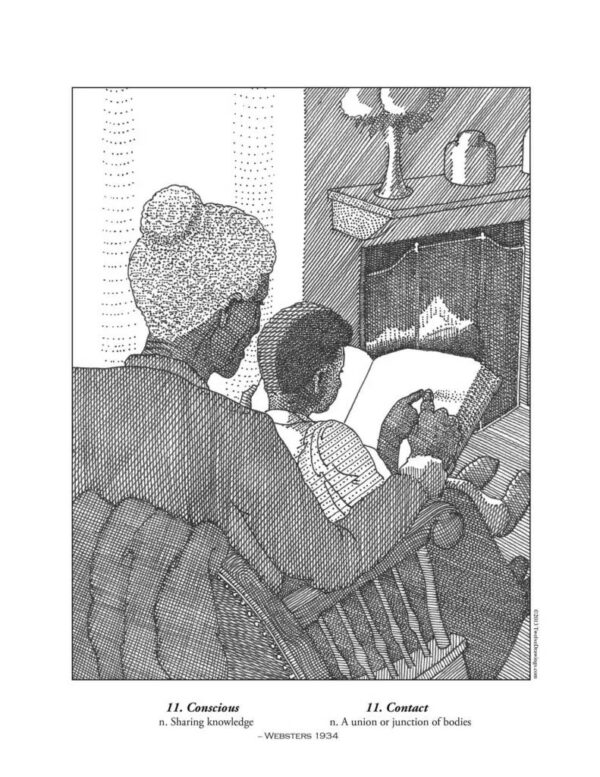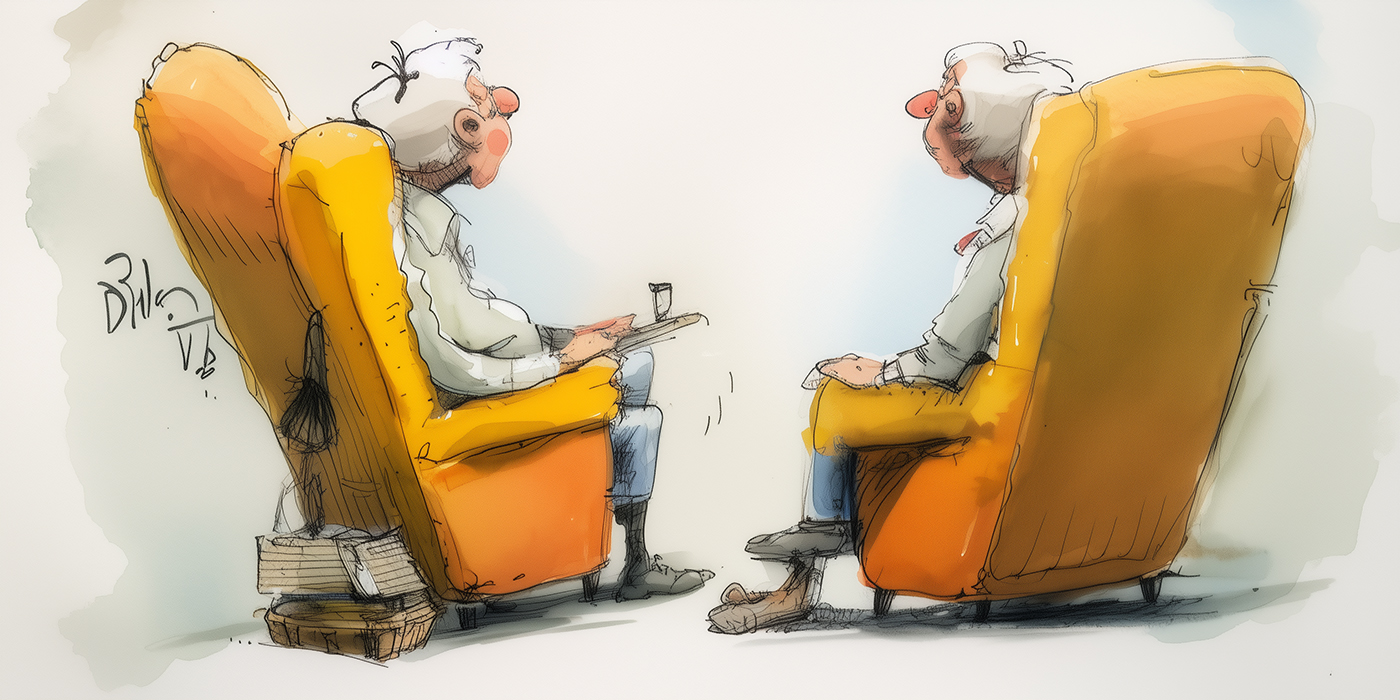I like to look up definitions of key words found in the Twelve Steps, using a 1934 Webster’s Dictionary, which was current when the Big Book was published, and then create drawings for them. Step Eleven has lots and lots of words! I could see a lot of important words in there, but for me the two most important words were “conscious contact.”
When I first read Step Eleven, it was difficult for me to relate with the phrase “our conscious contact with God.” It sounded highly religious! Whenever the word “God” was mentioned in the Steps or at meetings, I felt uneasy and wanted to skip to another subject. I associated God with the ideas and practices of highly religious people and that made me feel uneasy.
At some point, my sponsor detected that I was faking it when I mentioned my Higher Power. One day, he asked me point-blank whether I believed in God. I reluctantly shook my head no. After a pause, he asked if I could ever remember believing in God. I was about to shake my head again, but stopped. I suddenly recalled that when I was in elementary school, I felt an invisible and loving presence always nearby. Whatever it was, it seemed to be pleased when I did the right thing, and disappointed when I did not.
I found myself smiling over that distant memory. When he saw my smile, my sponsor asked, “Can you make contact with that presence again right now?” For some reason, I felt irritated that he would waste my time talking about a faded childhood memory when I was losing my life to addiction in the present. I almost snarled at him saying, “Well of course I can!” My sponsor didn’t miss a beat. He said “Okay. Then use that as your Higher Power for now.”
It is difficult to describe how much his statement shook me. That old memory had been dead and buried in my childhood. How could my sponsor suggest that I embrace such a childish feeling as my Higher Power? I suppose it was because he had read the White Book. He concluded that this conception of God was both real and natural to me (as opposed to lust, which made me a slave to the unreal and the unnatural). On that day, I made a Real Connection. It was as different as it could be from Bill W.’s mountaintop experience, but such personal progress can look quite different from one person to another.
When I decided to create a drawing for Step Eleven, I knew I had to find a real-world example demonstrating a “conscious contact.” The phrase sounded good, but what exactly did it mean? I turned to the dictionary for guidance. It defined “conscious” as: “Sharing knowledge; aware of that of which another is aware.” That definition surprised me because I had always thought that “consciousness” was something lofty and complex. Yet in the language of 1934, “conscious” was simply a sharing of knowledge. Next, I turned to the word “contact,” which was defined as: “A union or junction of bodies. Here I stopped cold. Surely I’m not supposed to seek physical contact with the God of my understanding?
I had to pray and meditate longer than usual about this one. Finally, I recalled the Big Book saying that we suffer from a mental insanity and a physical craving. By my reading, those two facts define the entire problem we must overcome with the help of our Higher Power.
When I turned back to Step Eleven, I saw something new. The Step directed me to keep my mind and physical body close to my Creator—mental and physical, mind and body, thoughts and actions, will and life.
Step Eleven encourages me to let my Creator stay close enough to touch. I do this by letting Him know what I know (shared knowledge) and letting Him go where I go (junction of bodies).
While reflecting on a possible “conscious contact” drawing, a memory came back to me that seemed to fit these descriptions. Whenever my mother came over to babysit my young children, she would put them on her lap and patiently read book after book to them. My usually squirmy, noisy kids became very quiet while perched in her lap. To them, there was something magical about my mother’s physical presence as well as the knowledge that she wanted to share with them through reading the books. While reflecting on this simple bedtime ritual, I found my illustration of sharing body and mind. Today, in recovery, if I can maintain anything approaching this level of closeness with my Higher Power in body and mind, maybe I can stay sober one more day.
Today, I feel grateful to my sponsor for helping me discover that my Higher Power has been with me all along. I am humbled that my family was supportive as I trudged my way back to sobriety. But during this 24 hours of sobriety, I am glad to be part of a fellowship that is built upon improving our conscious contact with God as we understand Him.

John I.






